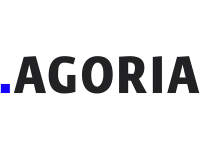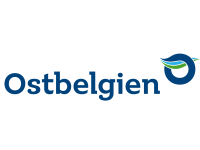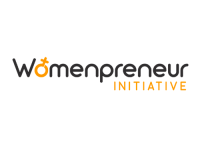News
The future needs her: Advancing women in STEM
Join the EPO online event ‘The future needs her: Advancing women in STEM’ (3 March, 10:00–11:30 CET). Discover new evidence on women’s career progression in
STEM stands for Science, Technology, Engineering & Math.
Current prejudices that we want to get rid of. Because the sector is not attractive to young women and has a high turnover. That’s why the influx of talented women must be improved, and the outflow of new role models must be greater.
Role models like Nabila – Young ICT Lady of the Year 2023 – have proven that it’s possible! Things can change! The future is digital – and diverse. As supporting players, we focus on activation, representation and inclusiveness.

Towards a strong and fully inclusive digital economy!
As society grows more than ever interwoven with the digital world, the labour market cannot lag behind. Digital literacy, advanced skills and soft skills are more important than ever. Yet the figures reveal a significant gender gap: women only make up 17% of all ICT jobs in the European Union.
The Belgian federal government, the FPS Economy, the private sector and other bodies have therefore drawn up a five-year plan to encourage more girls and women into STEM and ICT jobs.
The ‘Women in Digital’ strategy aims to:
- explore the how and why of the gender gap,
- raise public awareness,
- reache out to the most vulnerable groups.
The 5 strategic objectives of the “Women in Digital” plan
Only 7 in 1,000 women graduated in a STEM subject in 2020. The discovery of the digital world starts during childhood. So it is important to get girls interested in IT right from the start! Digital skills are first taught in primary school and used on a day-to-day basis throughout secondary school. As partner entities, we encourage students in the final year of secondary education to choose ICT and STEM subjects at college or university.
Women make up 52% of the population in Belgium, but only 17% of them find their way into the digital sector! Recruitment of women into the digital sector or into jobs requiring digital skills must be supported. To achieve this, we gamble on career guidance or professional reorientation, so that women can consider a career change. We also encourage female entrepreneurship in the digital sector or sectors requiring digital skills.
Very few women enter the ICT professions. At the same time, we can observe a higher rate of women than men leaving them. By removing obstacles and promoting an inclusive culture at work, we can retain women in a workplace where ‘lifelong learning’ is the norm! We also address this issue by supporting work-life balance and eliminating the 19% pay gap. Finally, we ensure that women inspire each other’s success by building a strong peer community.
Computer science and ICT are seen as masculine sectors. School books and the media still too often portray scientists as men. This project therefore aims to increase the visibility of female role models. In order to achieve this, we greatly increase the presence of women in the digital sector, on or off screen. We also organise special events and communication campaigns to further raise awareness. For extra impact, the FPS Economy promotes the cooperation between the public and private sectors.
By inclusive, we really do mean ‘inclusive’! This means targeting women from vulnerable groups and giving them decent opportunities. The plan thus promotes cultural diversity in the digital sector, while making this sector attractive to women of foreign origin. As digital skills are constantly evolving, we also offer reskilling and upskilling to female entrepreneurs and managers, enabling them to remain relevant players in their field.
The figures speak for themselves
In Belgium, 80.6% of ICT specialists are men and 19.4% are women.
Source : European Commission – Digital Scoreboard 2024
There are 6.5 times more men with ICT degrees than women
Source : European Commission – Digital Scoreboard 2024
Initiatives
The future needs her: Advancing women in STEM
Join the EPO online event ‘The future needs her: Advancing women in STEM’ (3 March, 10:00–11:30 CET). Discover new evidence…
Supporting Women Entrepreneurs conference
Supporting Women Entrepreneurs conference – Data and the stories it tells: Inspiration and the way forward On 5 March 2026…
Making it in ESTEAM: the journey of female entrepreneurs
Join us for the next edition of the Supporting Women Entrepreneurs webinar series on 11 February 2026. We will be…
The Future of Tech is Female
The Future of Tech is Female (FoTiF) celebrates and showcases the presence of women in technology, innovation and entrepreneurship. Held at BeCentral…
Do you have an initiative you’d like to see featured here?







































































